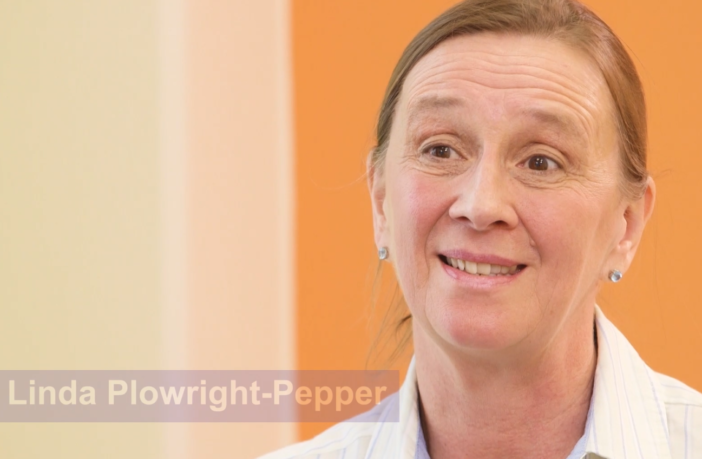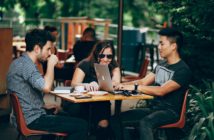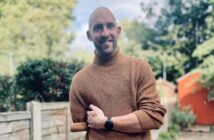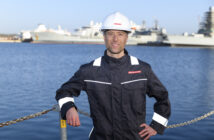Linda, 62, is a PhD researcher at the OU. Following a successful career working with young people and sport, she’s turned to research.
“I’ve not approached academia in a traditional way. I’m 62, so I’m ancient! I was secure within my professional world and don’t have the same confidence as an academic as I had in my professional life. Moving from practitioner to academic has been quite challenging, particularly gaining the confidence to stand up amongst my new peers and have academic conversations. Imposter syndrome has been very real.
“I was an average student at school and originally wanted to become a physical education teacher. Whilst studying for my teaching certificate I realised I enjoyed the studying more than the teaching. I embarked on a career in sport and recreation management, continuing my studies at night school. I went very happily up the rungs of the career ladder and ended up managing a sports centre on the south coast. I loved every second of being in public service; being with people and managing.
“An MBA with the OU followed; I studied the first year it became available. I had an absolutely fantastic experience. I was working freelance at the time and travelling in and out of London. I could get an hour a day of study each way on the commute, so my life circumstances worked well with the open learning route.
The bug for studying caught hold
“I came to Milton Keynes to be Chief Executive of a national charity which trained young people to become sports leaders and get people active. Then, the bug for doing some more studying came along again.
“I’d always thought I would love to do a Doctorate but if I’m honest I don’t think I ever thought I would. Then circumstances just came together. I’d recently taken a module with the OU on researching with children and young people. The final assignment for the course was to prepare a proposal for further research.
“By that time I had been Chief Exec for over a decade. I was discussing succession planning with my Board. I didn’t have any reason to leave because I loved the job, but I believed that there should be someone with better ideas, new ideas coming up.
“I didn’t think I’d have a chance!”
“Purely by chance, I saw the applications for CREET scholarships with the OU. CREET is the Centre for Research in Education and Educational Technology and every year they award a number of scholarships for fully funded PhDs. Collectively, there are a broad range of subjects that we are researching, all with a key link into education and educational research. I applied using the proposal from the module I’d studied and it was successful; I didn’t think I would have a chance!
“My area of PhD research is how children, primarily those aged 7-11 in middle childhood, experience physical activity.
“I was inspired by my charity work where, at our peak, we were training over 200,000 youngsters to become sports leaders. Young people are so wise and have such a lot to offer; I could see their power and their capabilities are brilliant.
“So my research has two key strands. One is accessing and really nurturing all those abilities that young people have, to actually show us adults what it is like. The other strand is to think differently about physical activity- to say that maybe it’s not all about competition which potentially puts people off being active.
Welcomed into the OU family
“As an OU PhD student you’re in a middle ground between a student and a member of staff. You’re based mainly on campus and are treated immediately that you enter this establishment as a full-time student, as an academic in the making. The generosity with which you are welcomed into that family is beyond reproach, it’s excellent. The support network that you have is amazing.
“I thought I knew The Open University because I had seven years as a distance OU student so I had very high expectations. I have to say they were exceeded in terms of the learning environment, it’s very vibrant. There’s always help and support available or somebody that is interested in your particular angle on a topic.
“I’ve found the personal discipline of the subject area the most challenging; the discipline of actually stopping and writing up the results. Working with the co-researchers is so inspiring that you can go on and on and on collecting data. I am afraid if I’ve ever got a choice then it will be to do the research!
“I’ve loved the camaraderie of PhD students and other colleagues around you. There’s a whole sense of a family around you and that’s how I feel having come to The Open University as a full-time student.
“Once my PhD is finished, I’m hoping to take on a Research Assistant role, and continue developing work with young people and their research capability because it is so exciting.”
Linda’s advice to PhD students
- Make sure you’re committed to the idea, as it can be a big challenge.
- Absolutely adore the subject that you’re going to research because that will help you through.
- Measure your energy as you go, because it’s a long journey.
- Start writing as soon as you can.
- Keep a very strong dialogue with your supervisors about their expectations.
- Use your supervisors and all of the support around you because it is there to help you gain clarity about what you’re trying to achieve.
Read more about Linda’s research.
Read more about CREET scholarships.
Read more about Research within the Faculty of Wellbeing, Education and Language Studies.
Read more about Research Degrees at the OU.
See latest PhD opportunities at the OU.



